So our dairy cows eat about 120 pounds of feed every day. What goes up must come down and what goes in must come out. Manure that is, fertilizer, brown gold, soil elixir.
Whatever you want to call what comes out of the hind end of a dairy cow, as dairy farmers we deal with it everyday. Manure happens. A few weeks ago on the farm we had the perfect opportunity for me to share with you guys how we deal with manure, but I was out of town. Thankfully Hubs grabbed the camera and took lots of photos for me, knowing that I would want pictures of tons of poop so I could put them on the internet. I am not sure what that says about me or our relationship but frankly I think these crappy photos are a sign of true love.
So this is our manure pit. What's a manure pit, you ask? Well a manure pit is a place that stores the manure on our farm until we can deal with it. A manure pit is where a dairy farmer gets their poop in a group. It looks a lot like a small pond, as you can see. That being said, I do not want to take a swim in it and neither do you. How our manure pit works is that all of the manure, water and excess sand bedding from our barns is scraped into an chamber under the barn every morning and night while the cows are out of the barn for milking. The chamber has an auger in it and the auger pushes the the manure out into our pit and that's where it sits. As the materials in the pit sit, the sand that we use for bedding naturally settles to the bottom of the pit and the water combines with whatever rainwater is in the pit. This spring with all the rain we had our manure pit got very, very full before we could deal with the manure in it.
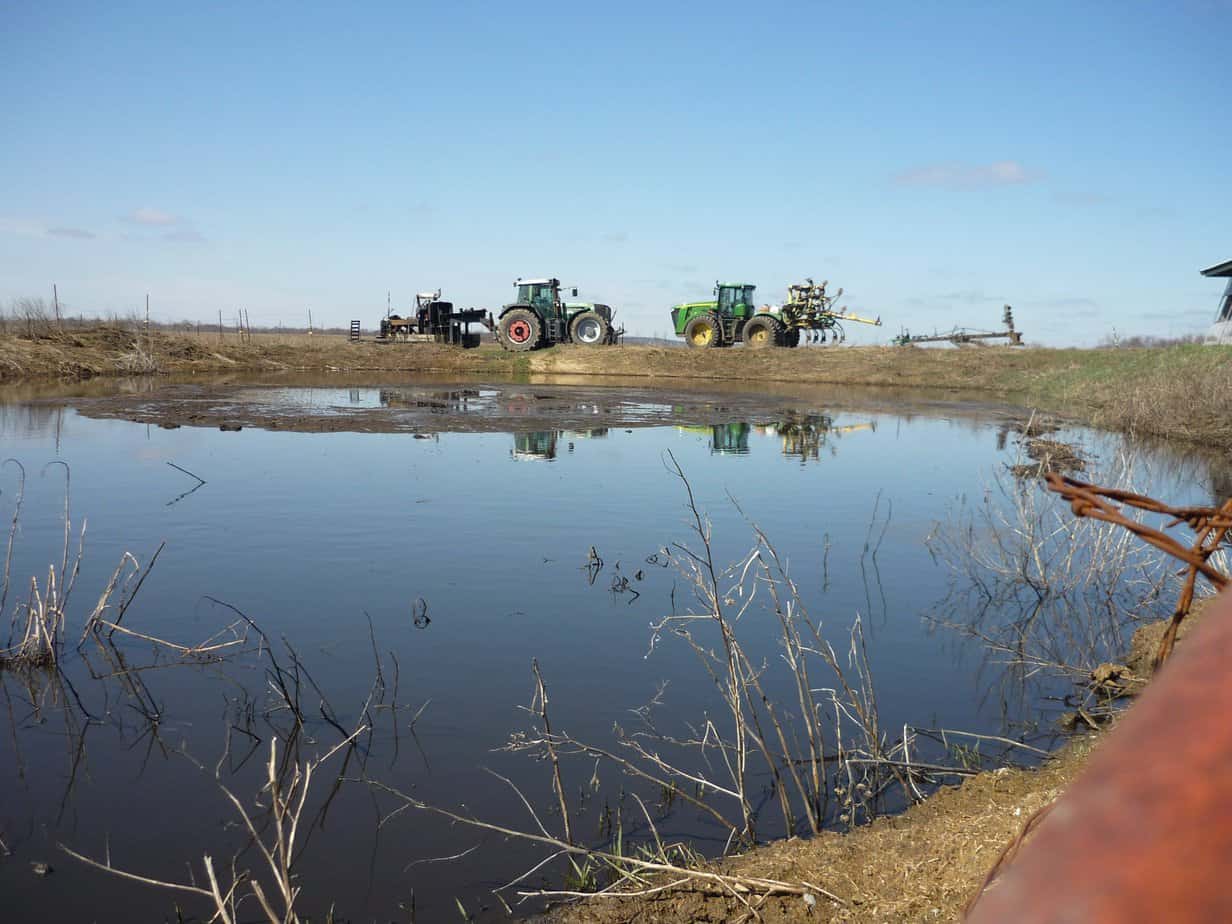
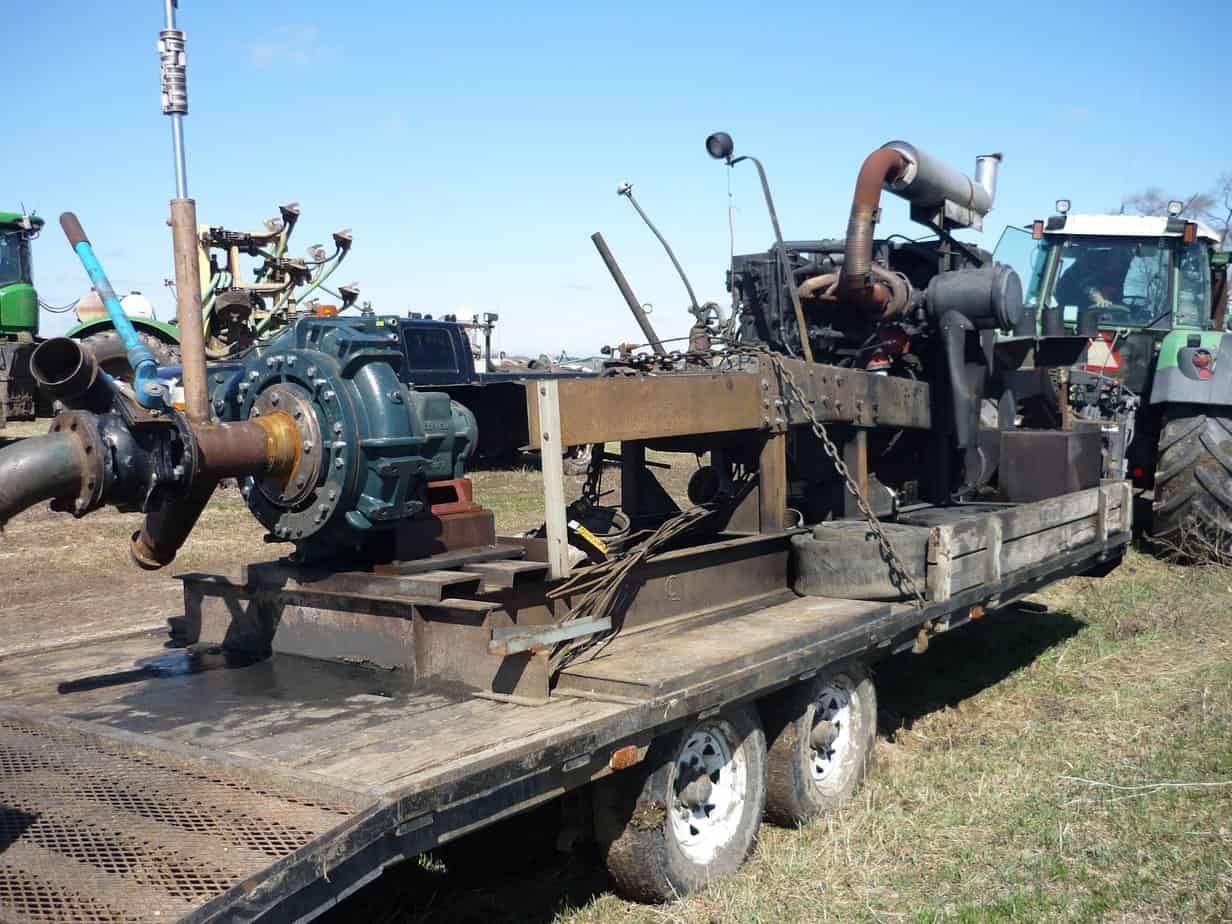
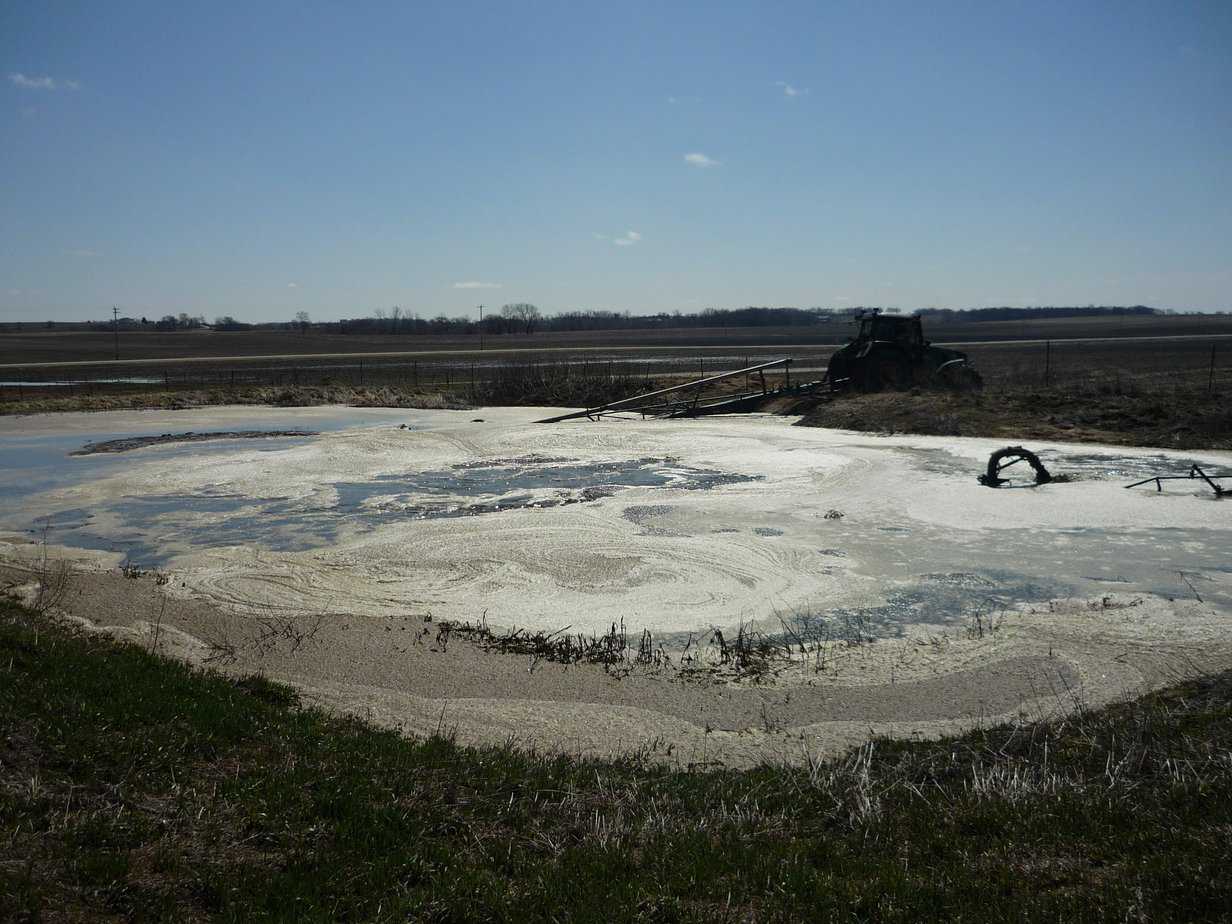
Once the manure slurry is ready it will go through the pump and into these huge hoses that run out to our fields where they are attached to the tractors. The field we were spreading on was pretty close to the manure pit but sometimes the fields are much farther away. The company that we use to spread our manure owns four miles worth of hoses. FOUR MILES!!!! that's a lot of hose!
Once the manure is pumped out to the the tractor waiting in the field it is pumped directly into the ground. The tractor drives along the field with an attachment behind it that opens up the ground and the manure goes right in. This also helps keep the smell down for our neighbors and makes manure runoff from rain pretty much impossible. How do we know how much manure to apply to a field? We work with a crop scout who helps advise us on what our soil needs to grow the best crops. The government requires us to keep records of which fields have had manure applied, when it was applied and how much was applied so that they can ensure accountability if there was an issue with the water in our area.
After the manure hauling crew is done there is still some sand left in the bottom of the pit that wasn't able to be sucked up by the pump. Once a year we clean out the sand from the bottom of the pit with a backhoe and it gets also gets spread on our fields but in a different way.
On Sunday I spent several hours in our skid loader putting buckets of old sand into our manure spreader and hauling it out into the field to be spread.
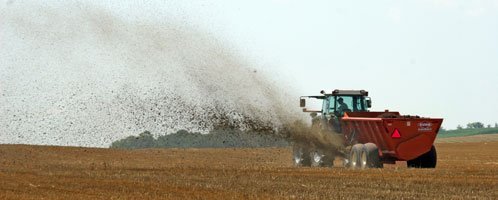
So that's scoop on how farmers deal with cow poop. One day I will write a post on how farmers deal with bull shit, but that's a totally different topic!
And if that's not enough about poop, check out Will Gilmer's little ditty about manure!
[youtube https://www.youtube.com/watch?v=SAUw9GO6tgE?rel=0&w=640&h=480]

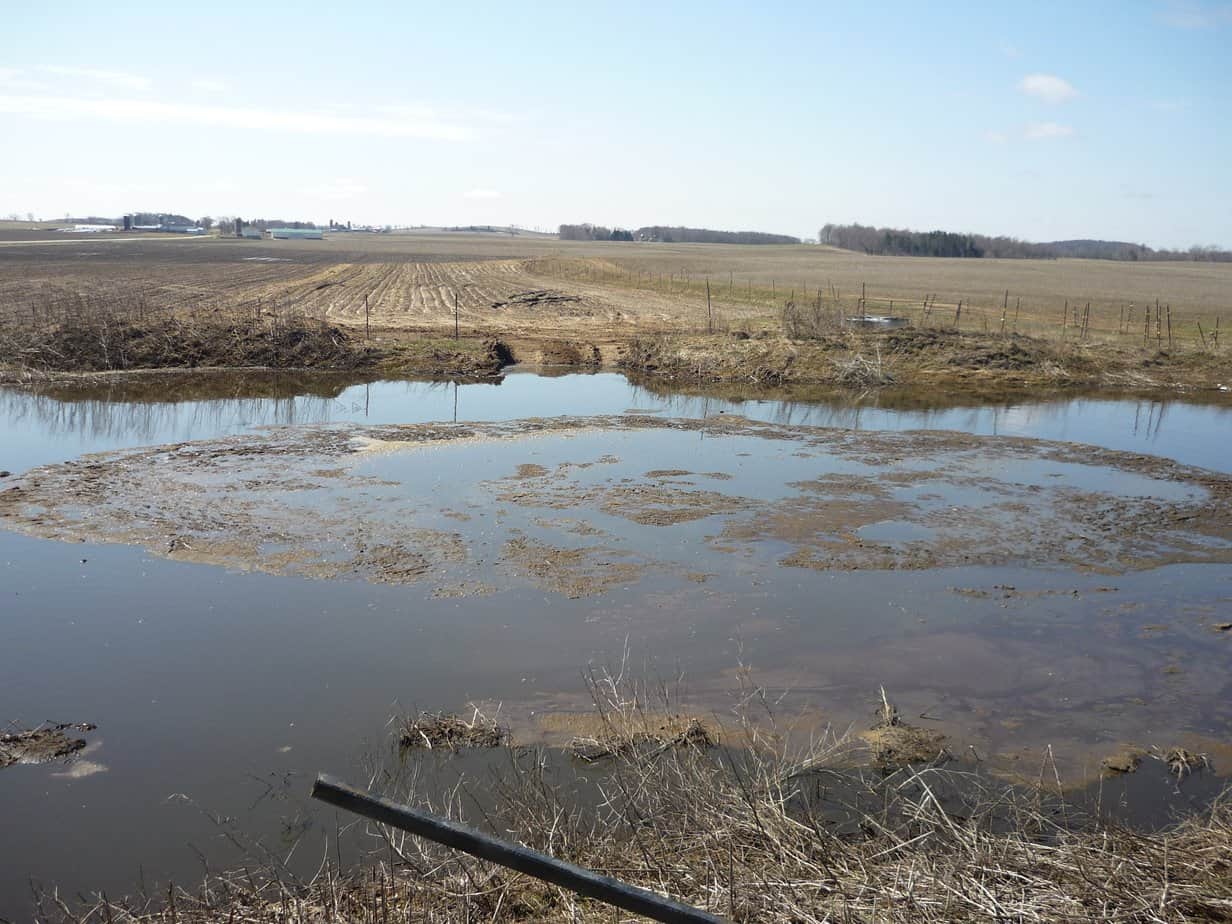
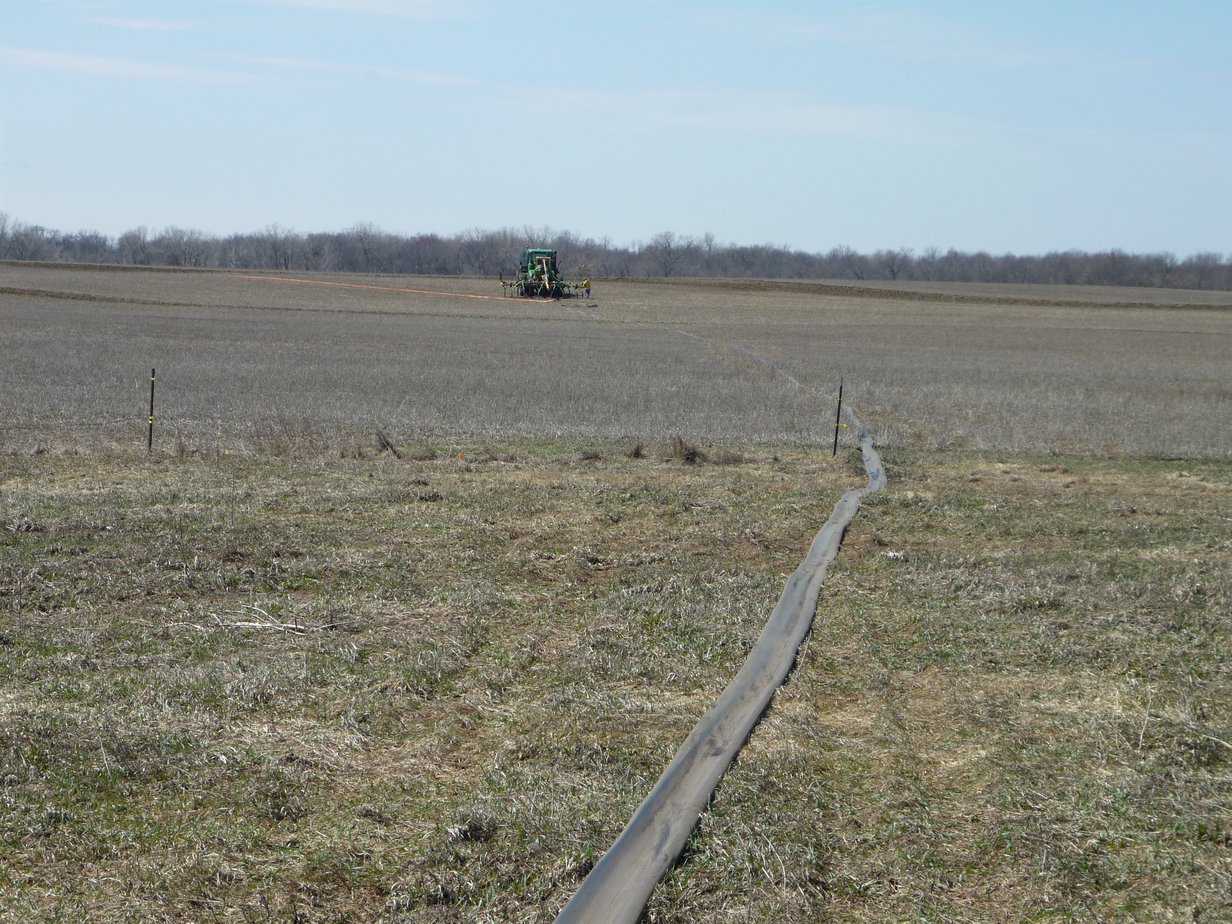
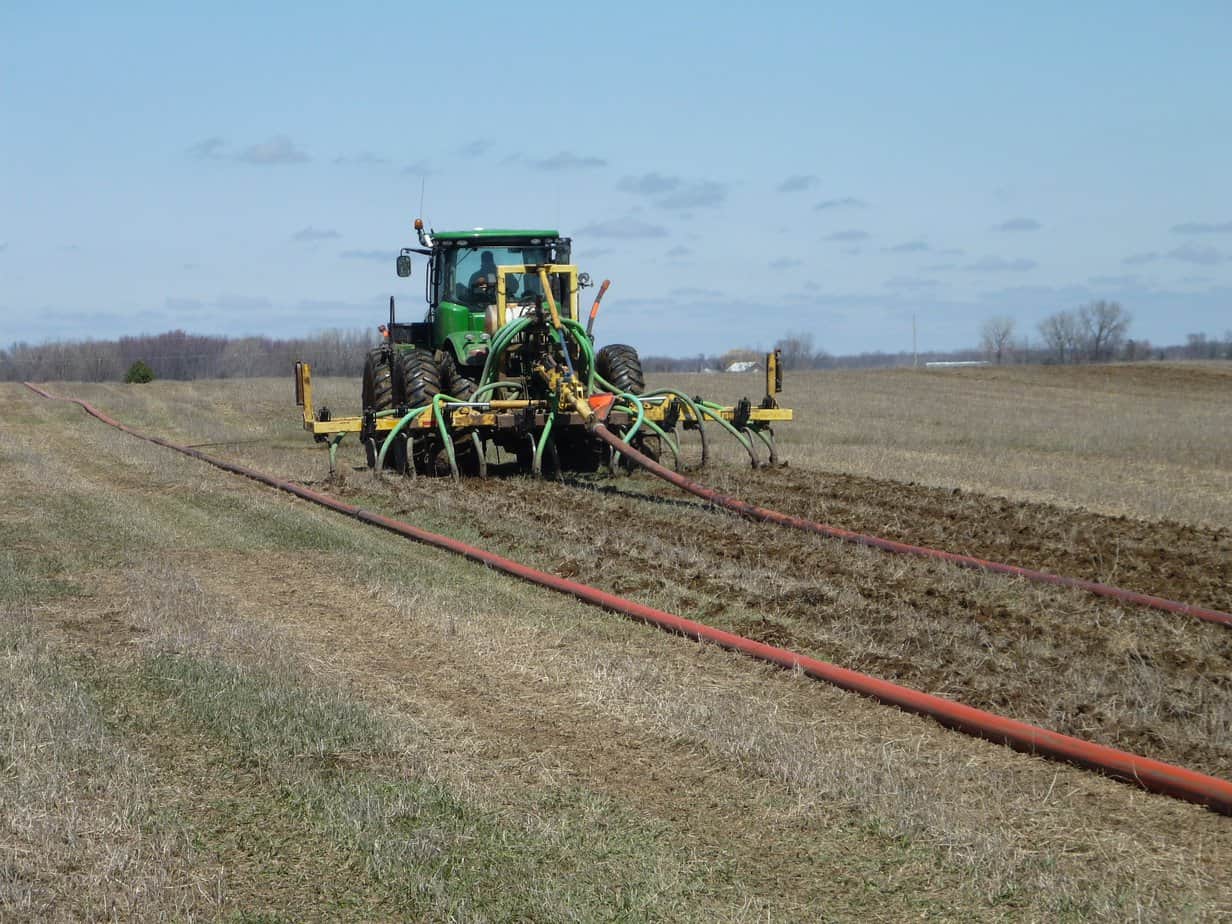
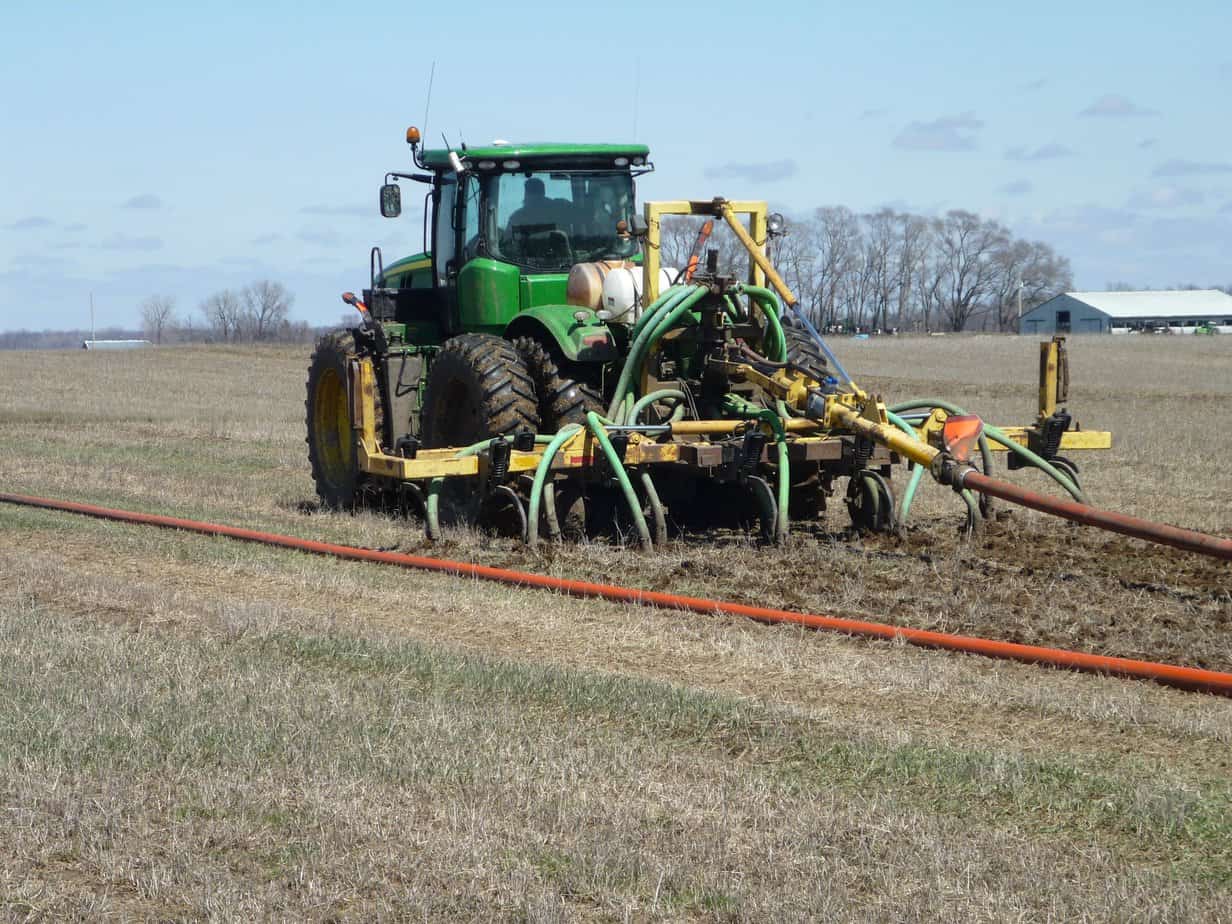
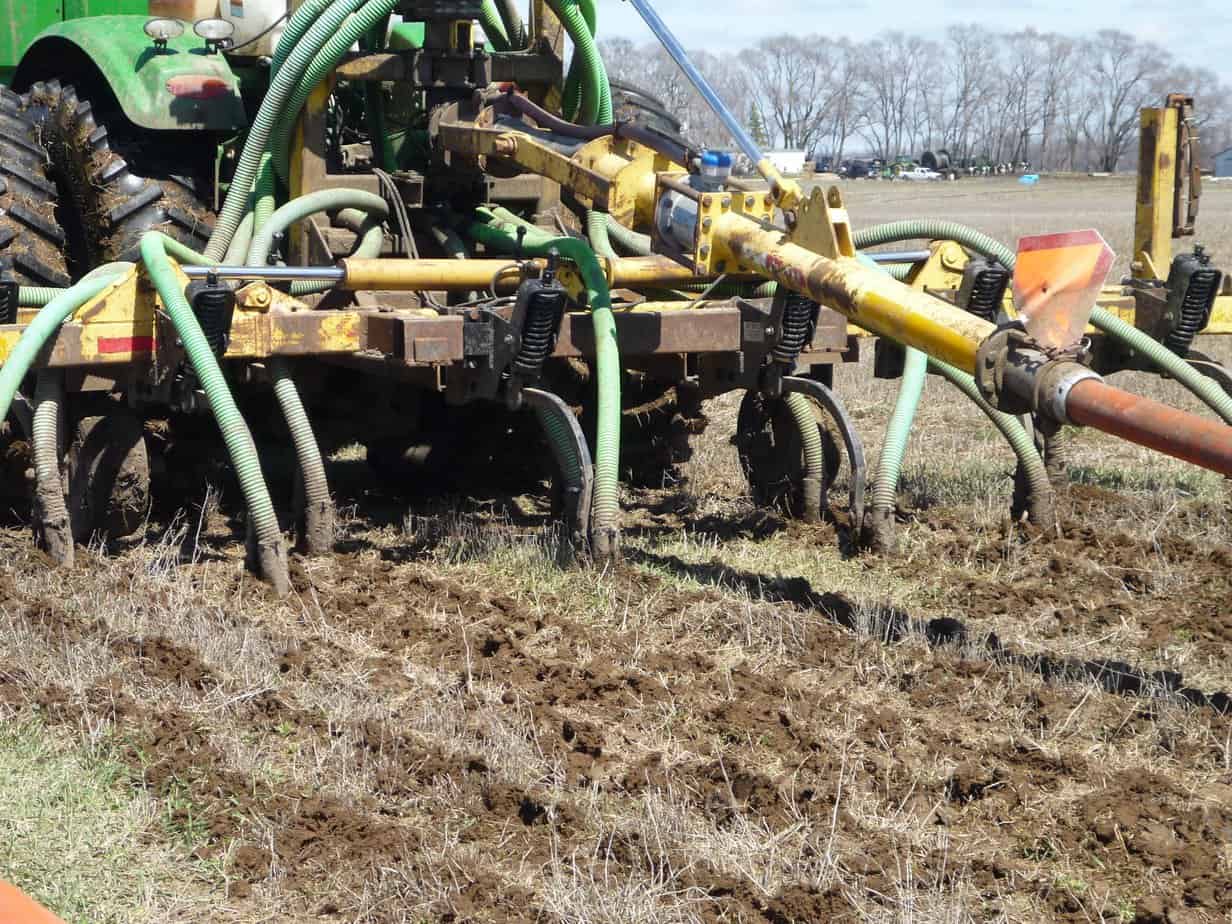
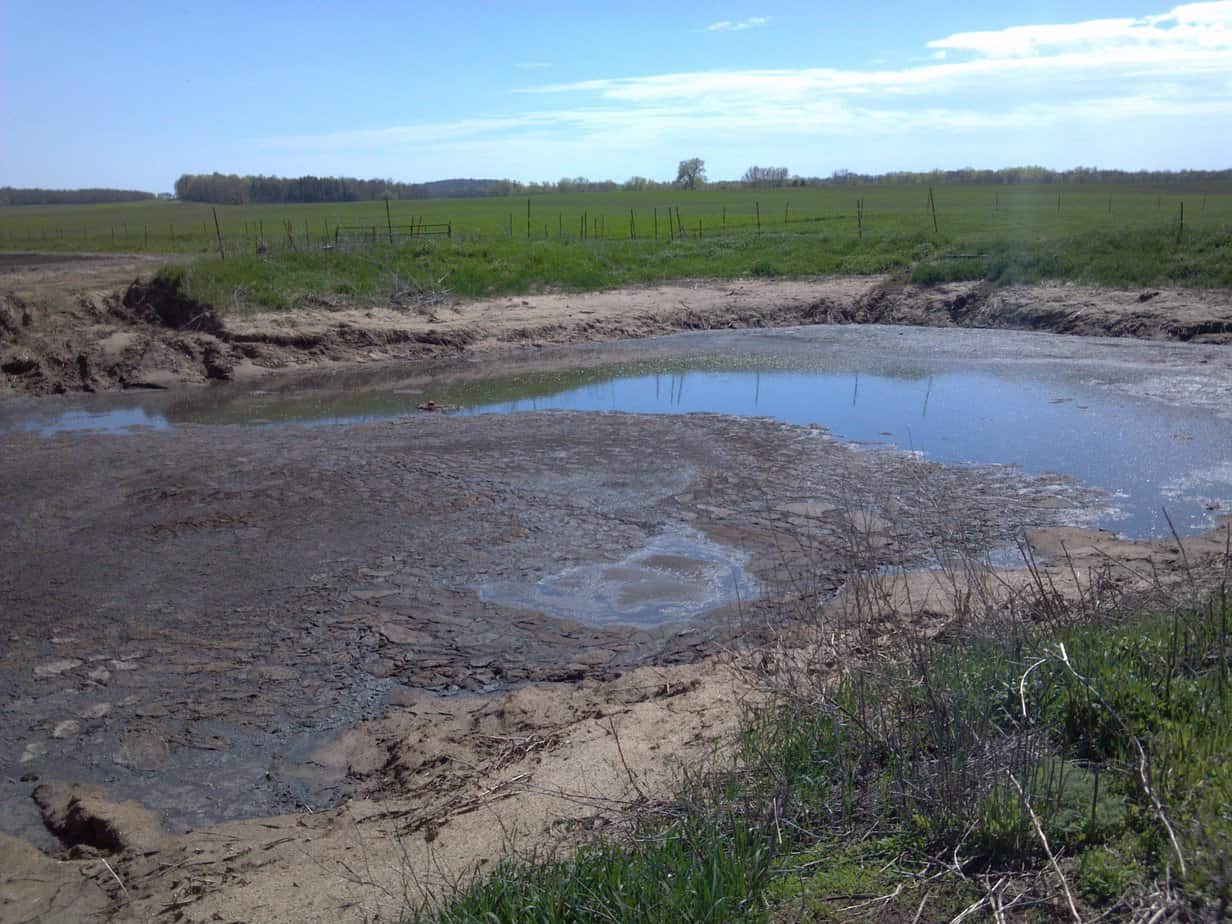
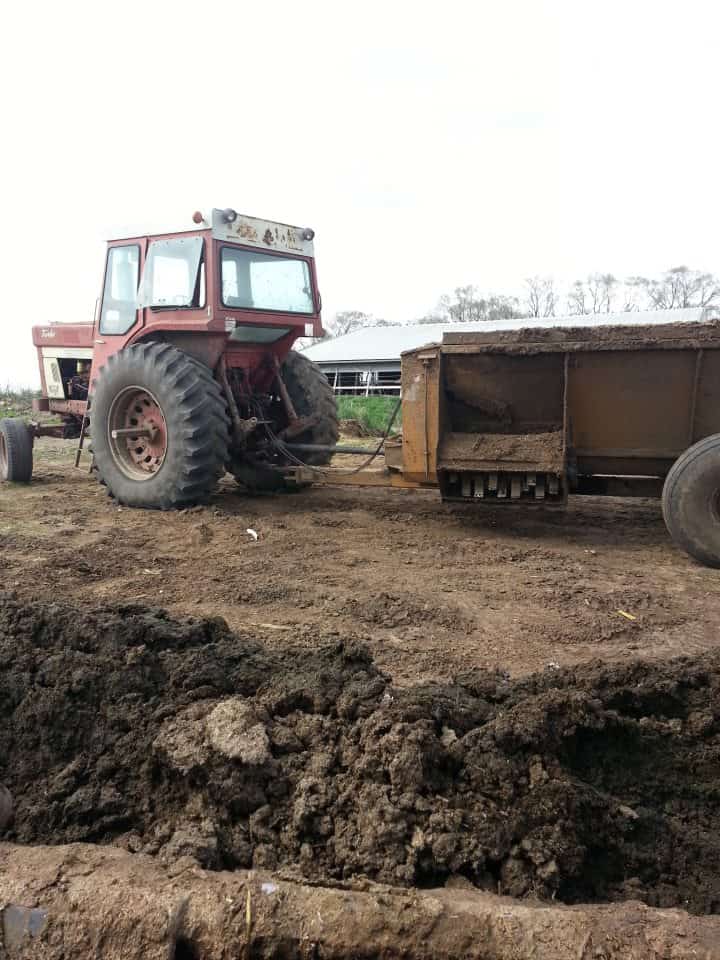




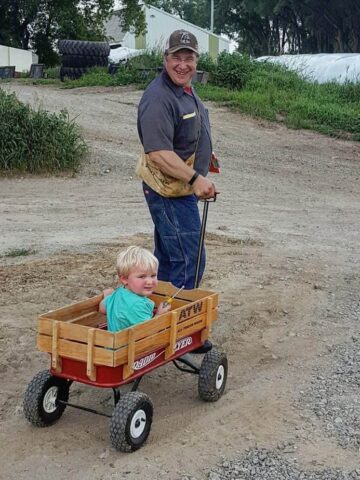
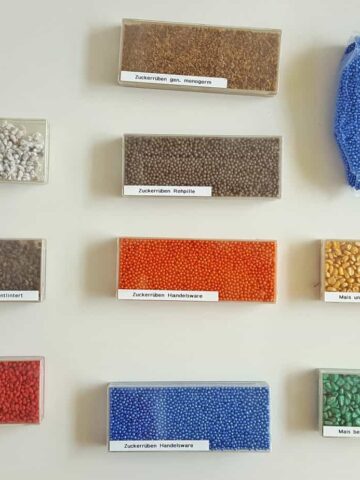
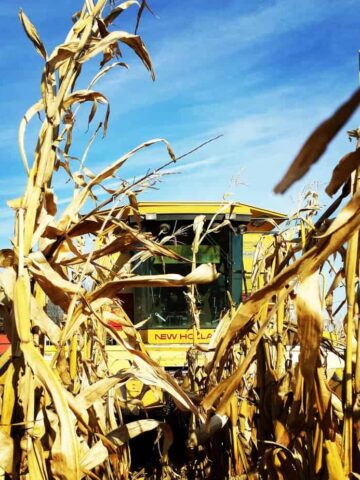
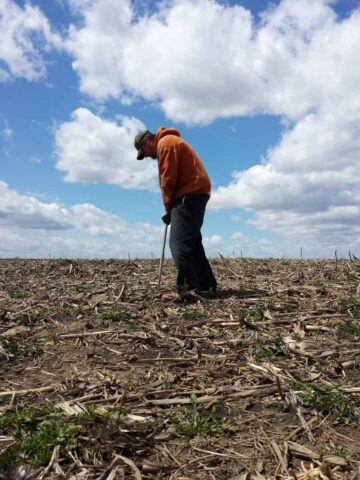
beth holt
your blog is just awsome. I really love to read everything you write and of course seeing the pics of the new arrivals. thank again
Ebru Karaismailoglu Yumurtaci
How you explained it all, informative and also fun!... Excellent! Thanks a lot... I love reading your blog. Please carry on Carrie!
katlynrumbold
You would be able to make poop interesting 🙂
Christy
Poop, now that reminds me of a funny story! The dairy I worked at was small (200 acres, 40 cows) The neighboring farmer had sold his land and a subdivision went in. One newcomer had a problem with the flies, so he confronted the owner's son "Bob" about it, who explained that where there's livestock, there's flies, and if he couldn't handle it, he should have reconsidered buying a house near a dairy farm that had been there far longer than he had. Well, this neighbor (who was actually more of where the poop comes from) proceeded to get really rude and sent some colorful language (we were used to that) and a few threats flying in his direction. Bob just said "Fine" and walked away. Three days later, the neighbor was having a big 4th of July cookout with all his city friends. Bob thought it would be a fine day to scrape out the barn and spread manure on that top hay field (across the street from the nasty neighbor, he usually spread it on the back fields) Guess what? Payback STINKS! 🙂
Rexella
While I am for farming and farmers,i live in a small community next to a dairy farm, i do get very mad when I can't enjoy the outdoors because of the HORRIBLE cow poop smell. This is caused by fertilizing the hay fields around the neighborhood. I understand why they do it. Is there anything that could be added to the poop to make it not so bad?
dairycarrie
Rexella, I think if they had invented something that made poop not stink, humans would already be using it!
Seriously though, it's probably very few days out of the year where the smell is strong. We try to be courteous about when we spread but we have to apply the manure when the crops and weather is right.
Paul Gonzales
Ever consider using the manure to grow black soldier fly larvae?
Ilonka Zlatar
Would you say that most dairy farms deal with their manure in this way? I'm guessing that the pond quickly goes anoxic and starts creating methane gas (bad for the climate). I visited Prairieland Dairy in Firth, Nebraska (which has been crowned one of the most sustainable dairy farms in America) and they compost their manure. They've started taking food waste from Lincoln, too, and I can tell you from standing in a pile of composted poop that surprisingly, it has virtually NO smell whatsoever. They also sell the compost!
Angela Faulk
We are looking at buying a property that is in close proximity to a large dairy. Is it going to be a constant smell during the summer or do you think it will come and go? Would this be a deal breaker?
dairycarrie
There will probably always be a slight scent of "dairy air" but probably only a handful of truly stinky days each year.